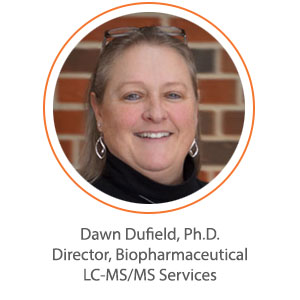Biomarker are key drivers in the drug development process. Frequently, developing a panel of biomarkers to test a particular mechanism or hypothesis is critical to the success of a drug. At KCAS, we develop assays for custom panels or individual biomarkers based on client needs and can also assist with the mechanism of action studies. Focusing on specific therapeutic areas builds the capability for measuring similar classes or types of biomarkers that can be applicable to multiple clients. In these cases, KCAS can make it a win-win by sharing the cost to develop and qualify or validate these markers. As part of our ongoing strategy, we have developed methods for a number of “therapeutic area” panels as highlighted below.
with the mechanism of action studies. Focusing on specific therapeutic areas builds the capability for measuring similar classes or types of biomarkers that can be applicable to multiple clients. In these cases, KCAS can make it a win-win by sharing the cost to develop and qualify or validate these markers. As part of our ongoing strategy, we have developed methods for a number of “therapeutic area” panels as highlighted below.
KCAS GLP fit for-purpose validated amino acid panel
We have developed and fully validated a 20-plex panel of essential amino acids using a UPLC-MS/MS assay based on a 2-mL aliquot of human plasma. The calibration ranges have an LLOQ of 0.5 to 2.5 mM with a ULOQ of 80 mM depending on each particular amino acid. The actual plasma concentrations range from 5-800 mM so plasma aliquots are diluted 10 times prior to extraction. Multiplexing this panel addresses the high cost of developing and validating 20 separate GLP methods and our clients can pick and choose which markers they want to analyze from this panel.
KCAS non-regulated fit for purpose validated (or qualified) Glycosphingolipids
We have significant experience working with glycosphingolipids (GSLs) including several subclasses of compounds such as ceramides, hexosyl ceramides (glucosyl ceramide, galactosyl ceramide, lactosyl ceramide, etc) and sphingosines (glucosyl sphingosine, galactosyl sphingosine, sphingosine or sphingosine-1-phosphate). Current research indicates that these analytes have a role as biomarkers in several neurogenerative diseases such as Parkinson’s, Alzheimer’s and Gaucher’s disease. KCAS is currently developing and qualifying a panel for this class of compounds measuring lipids with varying fatty acid chain lengths in a number of matrices including cell lysate, plasma, CSF and tissues. Literature approaches to these analytes have required more specialized approaches such as supercritical fluid chromatography. Our strategy was to develop a GSL panel using HILIC chromatography in conjunction with MS/MS based on a total run time of less than 10 minutes for a large panel of markers (currently 15, with capacity for additional analytes). We constantly monitor developments in the neuroscience biomarker field to determine whether more markers should be included. On that same basis, we can easily look at a specific subset of GSLs to meet your specific application.
KCAS developed/characterized Eicosanoids
Our most recent research has included the development of LC-MS/MS assays for eicosanoids that are metabolites of the arachidonic acid pathway. Among the most important of these are a variety of prostaglandins, leukotrienes, thromboxanes and HETE’s, to name a few. These markers are an important part of inflammation pathways and could have a role to indicate proof of pharmacology for pipeline therapies in many inflammatory diseases such as the cyclooxygenase (COX) and lipoxygenase (LO) and NSAID pathways.
At KCAS we are always looking to help partner with our clients to drive the drug discovery and development process. We can develop assays for specific classes of biomarkers or custom panels that can be proprietary or applicable to a general disease or therapeutic area. We have highlighted our experience in LC-MS/MS for measurement of biomarkers. KCAS is also committed to utilizing state of the art instrumentation for biomarker measurement including flow cytometry, electrochemiluminescence (ECL) & ultra-sensitive single molecule counting platforms. KCAS’ analytical experts are committed to providing the resources to help your programs move forward.

